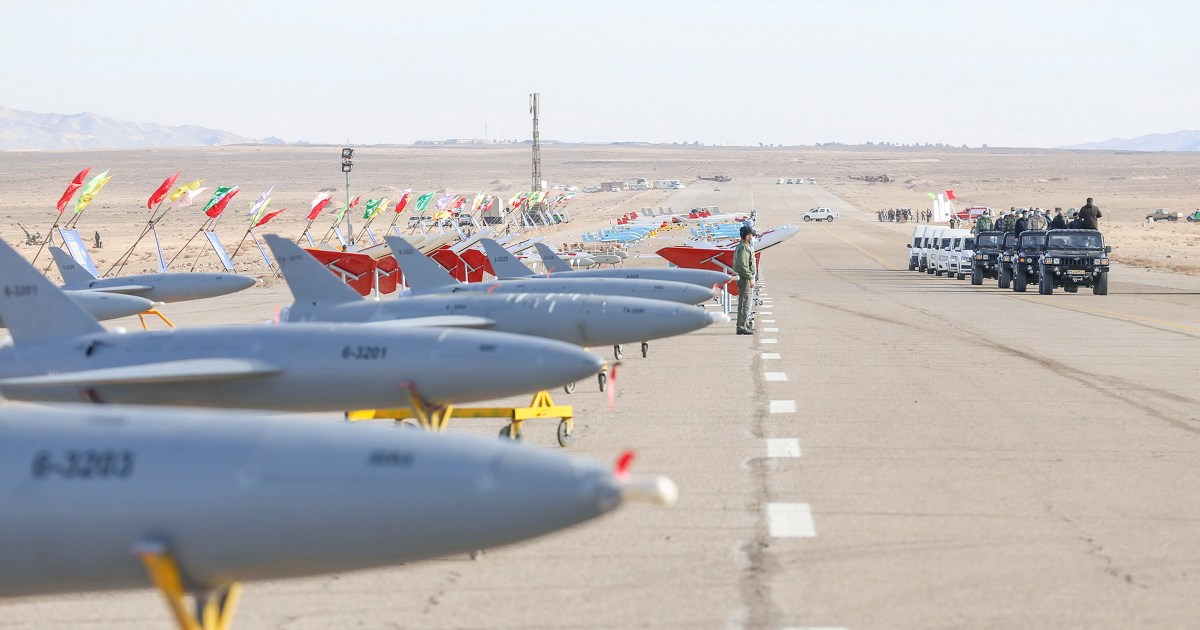Occupied Jerusalem -
Israeli military analysts and researchers almost unanimously agree that the escalation of tension between Iran and Azerbaijan is not necessarily a positive thing for Israel, but they believe that this escalation will not slip to the point of confrontation and the public military targeting by Tehran of Tel Aviv's interests.
These Israeli estimates come after Tel Aviv recently carried out "sabotage" operations targeting factories near Tehran linked to the Iranian nuclear and missile programs.
Although the Iranians did not disclose the details of the results of these sabotage acts, which raised Tehran's fears that Tel Aviv would exploit its strong relationship with Baku as a platform to target its secret programs, Iran warned its northern neighbor that it would not tolerate Israeli actions from Azerbaijani lands.
Tehran's allegations that Israel would use the airports in Azerbaijan if Tel Aviv decided to attack Iran caused great tension in relations between Azerbaijan and Iran, which escalated the language of threats and threats and carried out military maneuvers along the 900-kilometre border with Azerbaijan, with the participation of ground forces, artillery and armored brigades. Drones and electronic warfare mechanisms.
Arms deals between Israel and Azerbaijan, especially the first huge deal signed between the two countries in 2012 and amounting to 1.6 billion dollars, followed by annual deals at a rate of one billion dollars each year to provide Azerbaijan with drones and Israeli satellite systems, is also seen as another expression of a development that threatens Iran.
Iranian threats
Despite the severity of the Iranian threats, Ron Ben-Yishai, a military analyst for the Yedioth Ahronoth newspaper, downplayed Tehran's threats to Israel and Iranian maneuvers along the border with Azerbaijan.
In an article in the newspaper, Ben Yishai ruled out the possibility that Tehran would target Israeli interests in Azerbaijan, and suggested that the threats come in response to what is attributed to Israel of targeting Iranian nuclear facilities and threatening Iranian economic interests by Azerbaijan.
The military analyst pointed out that the maneuvers reflect the concerns that Tehran is experiencing as a result of Israel’s incursion into the Caucasus region and the strengthening of its relations with Azerbaijan, and therefore these maneuvers and threats come in the context of the rearrangement of cards by Iran and regional countries, such as Turkey, and the development of strategies after the war between Armenia and Azerbaijan in the region Nagorno-Karabakh last year.
Israeli weapon
Ben Yishai clarified that the relations of trade exchange and the purchase of military equipment between Israel and Azerbaijan are known to everyone and are not a secret, as Israeli sources mention that Azerbaijan has purchased an Israeli missile system and drones manufactured by the Israeli company Elbit for defense and military industries.
During the war in the Nagorno-Karabakh region, the military analyst says, "Azerbaijan bought advanced weapons systems from Israel for nearly one billion dollars, and a deal was previously concluded between the two countries at a rate of one billion dollars annually, and in exchange for these deals, support and Israeli assistance, Azerbaijan was able to Tel Aviv to conduct intelligence and military training in its territory without disclosing the nature of these Israeli military exercises and maneuvers.”
Ben Yishai believes that Iran sees the Israeli armament of Azerbaijan as a cause for concern because the support and military advice from Israel, and private companies, enhances Azerbaijan’s military strength, and thus gives it the power to demand economic benefits and demand more natural resources, which it may share with Iran, and this threatens the interests of Economic Iran in the event of any dispute with Azerbaijan.
export crises
With the recurring incidents of targeting Iranian nuclear facilities, Dr. Nimrod Goron, director of the Mitvim Institute, which specializes in foreign policies for the Middle East and Israel, believes that Tehran has escalated allegations and threats to Azerbaijan due to Israeli activity against Iranian targets from inside Azerbaijan, which has common borders. It has a long border with Iran, a border that is only a few hundred kilometers from the capital, Tehran.
In his speech to Al-Jazeera Net, Goron says that "Tehran is exploiting the tension with Tel Aviv, which is strengthening its security relations and military cooperation with Azerbaijan, to export the crises that have beset it as a result of the dispute between Iran and Azerbaijan over the transfer of Iranian fuel trucks and goods to its ally Armenia through the Nagorno-Karabakh region."
This land route is considered very important for smuggling oil and products from Iran to Armenia, and this is another reason for "the Iranians' attempt to threaten Azerbaijan with major military maneuvers by land and air forces on the border between the two countries," Gurun says.
In addition, Gurun believes that "there is an ancient conflict between the two countries that stems from the identity of the population in the border region, as one third of Iranians are Azerbaijanis. Since the independence of Azerbaijan in 1991, the relations between these two countries have been saturated with tension, so the current tension between Iran and Azerbaijan is not new." ".
But on the other hand, he believes that the current tension is exceptional compared to previous periods "due to the increase in international sanctions on Tehran, as well as the threat attributed to Israel to launch an attack on Iranian nuclear facilities."

